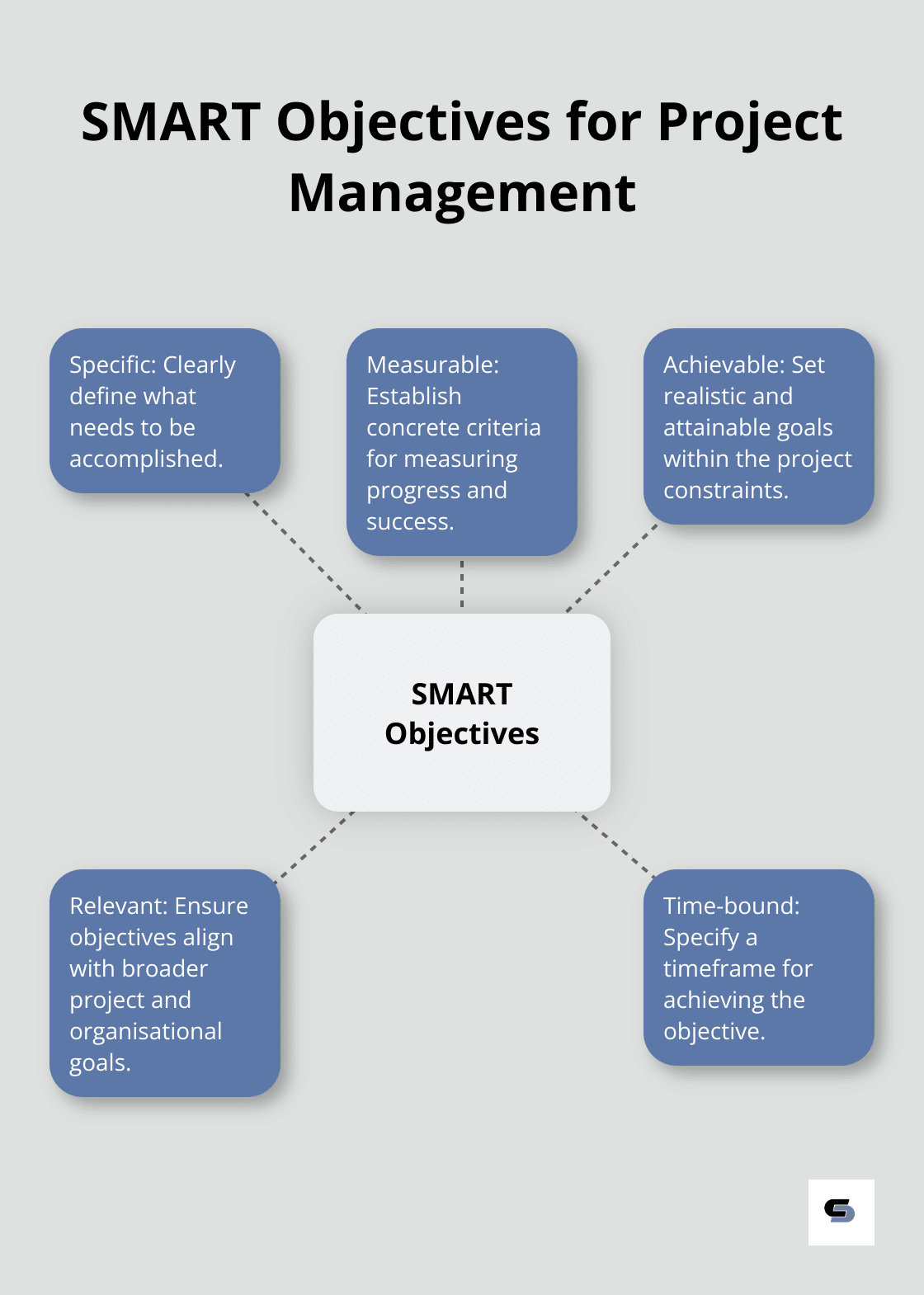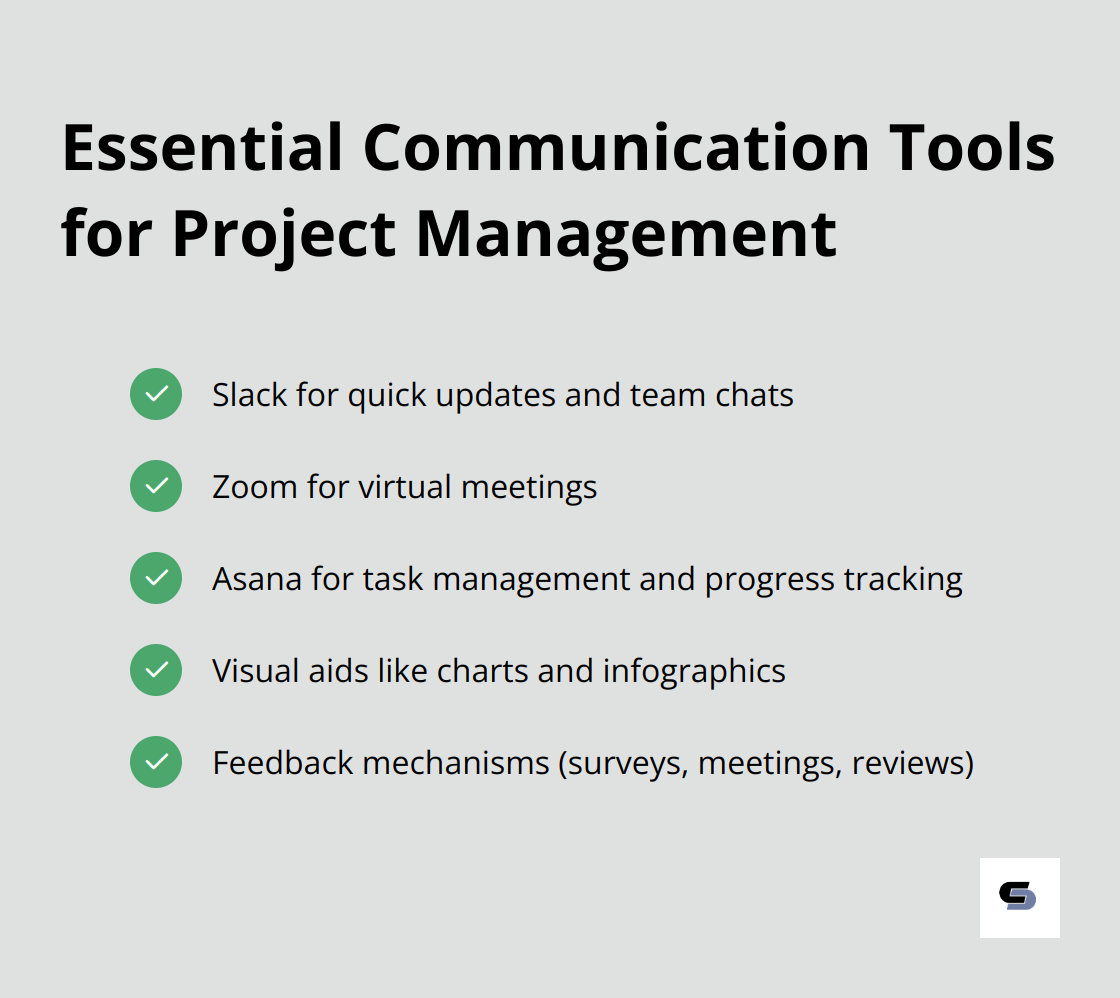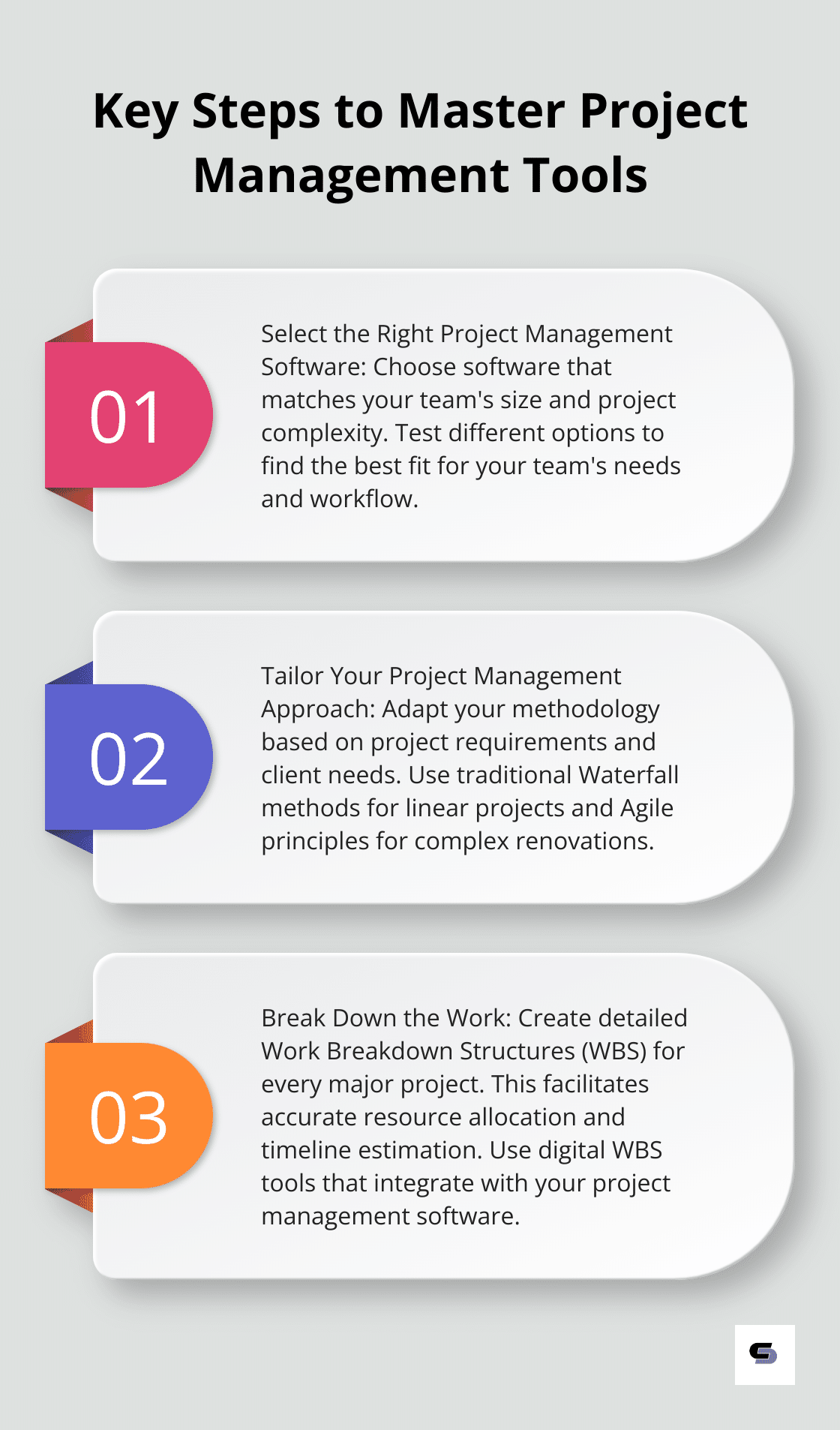How to Implement Project Management Best Practices
At Cameron Construction, we know that successful projects hinge on effective management. Project management best practices are essential for delivering quality results on time and within budget.
In this post, we’ll explore key strategies to streamline your project workflow and boost team productivity. From setting clear goals to leveraging cutting-edge tools, these techniques will help you tackle any construction challenge with confidence.
How to Set Clear Project Goals
Understand Your Stakeholders
The first step in defining clear project goals is to conduct a thorough stakeholder analysis. This involves the identification of all parties affected by or interested in the project, from clients and team members to local authorities and suppliers. We recommend the creation of a stakeholder map, which details each stakeholder’s interests, influence, and potential impact on the project. This visual tool helps prioritise stakeholder needs and anticipate potential conflicts or challenges.
Create Measurable Objectives
After understanding your stakeholders, it’s time to create SMART objectives. SMART stands for Specific, Measurable, Achievable, Relevant, and Time-bound. For example, instead of setting a vague goal like “improve energy efficiency,” a SMART objective would be “reduce energy consumption by 30% within 12 months of project completion.” This approach provides clear targets and makes it easier to track progress and measure success.

Develop a Comprehensive Project Charter
A project charter is a crucial document that outlines the project’s purpose, scope, objectives, and key stakeholders. It serves as a reference point throughout the project lifecycle and helps prevent scope creep. When you develop your charter, include key performance indicators (KPIs) that will be used to measure project success.
A well-defined project charter is your roadmap to success. It should be concise yet comprehensive, providing a clear direction for your team and stakeholders. Spending extra time on this document upfront saves countless hours and potential misunderstandings down the line.
Align with Organisational Strategy
The final step in setting clear project goals is to align them with the broader organisational strategy. This alignment ensures that your project contributes to the company’s long-term objectives and receives the necessary support from upper management. Try to identify how your project’s outcomes will impact the organisation’s strategic goals (e.g., market share growth, cost reduction, or innovation).
With these steps completed, you’ll have created a solid foundation for your project. Everyone involved will understand the goals and how they’ll be achieved. This clarity is essential for maintaining focus, managing resources effectively, and ultimately delivering a successful project that meets or exceeds expectations.
As we move forward, it’s important to consider how these clear goals will be communicated to all stakeholders. In the next section, we’ll explore effective communication channels that ensure everyone stays informed and aligned throughout the project lifecycle.
How to Communicate Effectively in Project Management
Select the Right Communication Tools
The first step in establishing effective communication channels is to choose the right tools. A mix of digital platforms keeps teams connected. Slack works well for quick updates and team chats, Zoom for virtual meetings, and Asana for task management and progress tracking.

Schedule Regular Check-ins and Status Updates
Consistent communication is key to project success. Weekly team meetings and daily stand-ups help identify and address issues quickly. Regular team check-ins foster an atmosphere of communication, allowing team members and contractors to discuss project progress and challenges.
Craft a Comprehensive Communication Plan
A well-structured communication plan is essential. Create a detailed plan that outlines who needs what information, when they need it, and how it will be delivered. This includes everything from progress reports for stakeholders to safety briefings for on-site workers. The plan should also specify communication protocols for different scenarios, ensuring everyone knows how to respond in various situations.
Implement Effective Feedback Mechanisms
Feedback is vital for continuous improvement. Use a multi-channel approach to gather feedback (anonymous surveys, one-on-one meetings, and post-project reviews).
Leverage Visual Communication
Visual aids can significantly enhance understanding and retention of information. Use charts, graphs, and infographics to present complex data in an easily digestible format.
Clear, consistent communication prevents misunderstandings, reduces delays, and ensures alignment with project goals. As we move forward, it’s important to consider how these communication strategies integrate with project management tools and techniques. In the next section, we’ll explore the essential tools and methodologies that complement effective communication for successful project execution.
Mastering Project Management Tools
The choice of software can significantly impact project success. Project management software is essential for construction firms, offering features like RFI tracking and drawing management. The key lies in matching the tool to your team’s size and project complexity.

Select the Right Project Management Software
Test different options to find the best fit for your team.
Tailor Your Project Management Approach
Construction projects demand flexibility in methodology. Traditional Waterfall methods suit linear projects, while Agile principles apply well to complex renovations. Adapt your approach based on project requirements and client needs.
Assess each project individually to determine the most suitable methodology.
Break Down the Work
Work Breakdown Structures (WBS) prove invaluable for managing complex projects. Create detailed WBS for every major renovation, dividing tasks into manageable chunks. This approach facilitates accurate resource allocation and timeline estimation.
Use a digital WBS tool that integrates with your project management software. This integration enables real-time updates and improved tracking of task interdependencies.
Mitigate Risks Proactively
Risk management remains non-negotiable in construction. Employ a comprehensive risk assessment matrix for each project, identifying potential issues and developing mitigation strategies. This proactive approach can reduce unexpected delays.
Create an accessible risk register for all team members. Encourage everyone to report potential risks, regardless of perceived significance. This collective vigilance prevents minor issues from escalating into major problems.
Leverage Data Analytics
Incorporate data analytics tools to enhance decision-making. These tools analyse historical project data, identify patterns, and provide insights for future planning. Data-driven decisions lead to more accurate estimates and improved resource allocation.
Try to integrate your analytics tools with your project management software for seamless data flow and real-time insights.
Final Thoughts
Project management best practices form the cornerstone of successful construction projects. These practices enable teams to navigate complex challenges and deliver high-quality results. We at Cameron Construction have witnessed how these strategies can transform project outcomes, from kitchen renovations to multi-storey home expansions.
The construction industry evolves rapidly, and so should project management approaches. Companies must review and refine their processes regularly to maintain a competitive edge. Adopting new technologies and learning from each project helps meet changing client needs and industry standards effectively.
Cameron Construction offers expert services for home renovation and extension projects (backed by over 40 years of experience). Our team of skilled professionals dedicates itself to bringing your vision to life while adhering to the highest standards of project management. Take the first step today and watch your projects become more efficient and your results more impressive than ever before.






